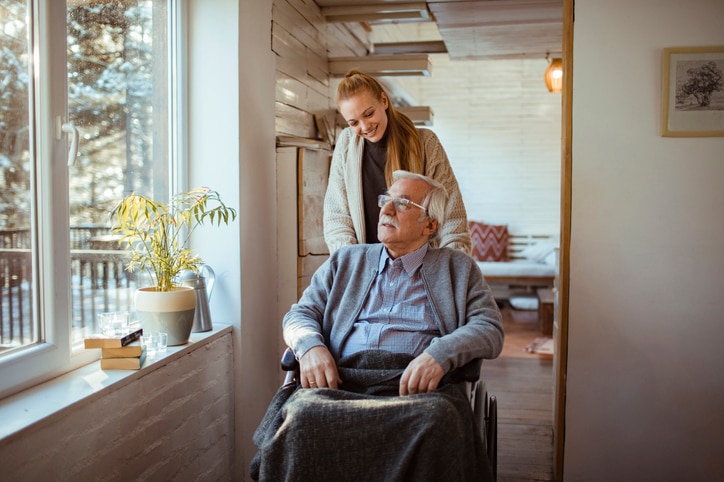It’s okay to reach out for extra support. If you’ve discovered that the scope of care that’s needed is beyond what you or your team can provide, or if you’re not sure what’s actually needed, consider getting help from an organization in your community.
Locate Community Resources
A variety of support services are available to people ages 60 and over and their caregivers throughout the United States. Your local area agency on aging can typically help connect you to services such as home-delivered meals, transportation, adult day services centers, care management, and more.
Check into the services offered in your community through the Eldercare Locator.
Consult a Professional
Oftentimes, a loved one’s needs will be complex — especially when health, emotional and financial issues come into play. A nurse or social worker can help you determine what’s needed, find services and arrange for and monitor the care. Perhaps your workplace has an Employee Assistance Program that can help connect you to professionals and services in your community.
You can also find services through the Eldercare Locator.
Hire Help
If you see that your loved one needs help with daily activities, you can explore the range of home care services available. Some home care workers do housekeeping, meal preparation, laundry and shopping. Others provide more hands-on help with bathing, dressing and transferring from one position to another, which usually requires special training, a license or certification — depending on the laws in your state.
Your local agency on aging can help you identify the appropriate services and connect you with local providers. They can also help you determine eligibility for publicly funded services. If you work with a home care agency or hire someone on your own, be sure to ask about licensing, background checks, training and costs. Get references to ensure good quality.
Visit the AARP Caregiving Resource Center for more information on how to hire and find help.
Secure Safety
The main goal is to help your loved one stay as independent as possible — and in their own home. As your loved one has more difficulty getting around, or their vision or hearing fades, some simple changes can be made to make the home safer. Handrails, grab bars, night lights and adjustable shower seats can make a house safer and more comfortable.
The AARP Home Fit Guide offers solutions that range from simple fixes to improvements that require skilled expertise.
Find Housing With Supportive Services
If your loved one decides that they would prefer to get care in a new residence that combines housing with support services, you can look into the variety of housing options that may be available in your community.
Begin by making a list of criteria, such as location, group dining, laundry service, and more. Not all types of housing are available in every community. Our Glossary includes common definitions for the different types of housing alternatives available.
Once you know the type of living arrangement desired, visit several facilities, and be sure to talk with residents and their families.
For more information about how to choose the right housing option, go to the AARP Caregiving Resource Center. If selecting a nursing home, go to Medicare’s Nursing Home Compare page.
NEXT STEP: “Self-Care: How to Care for Yourself While Caring for a Loved One“
“Prepare to Care Guide,” courtesy of AARP and republished on Care.com with permission.





